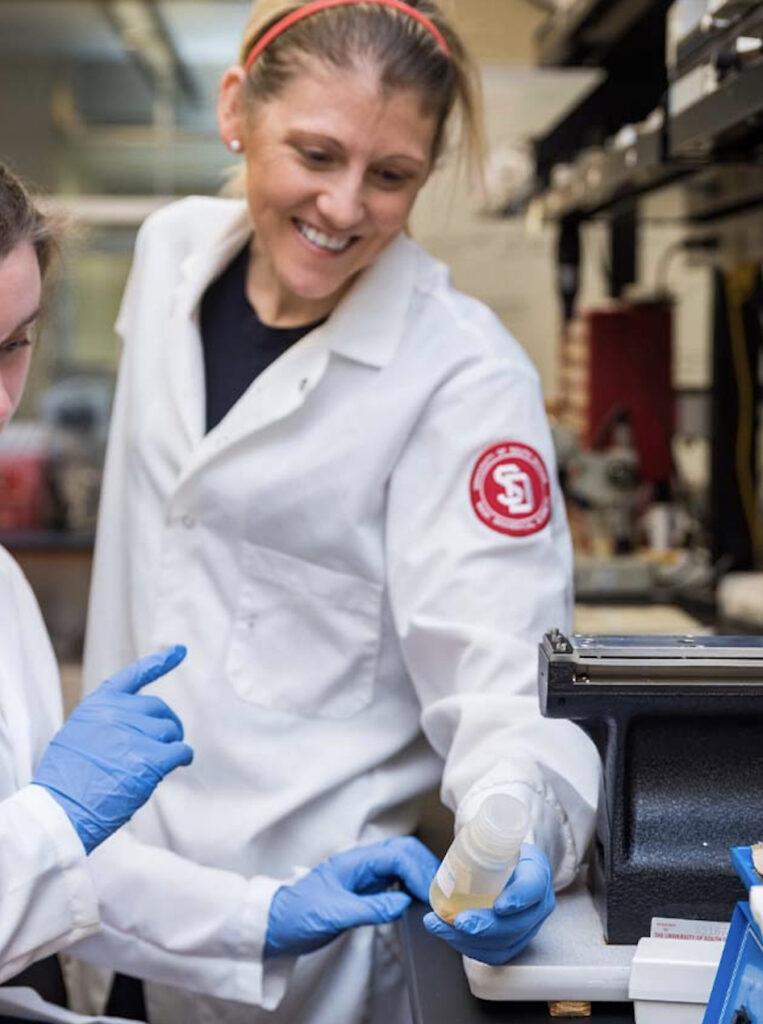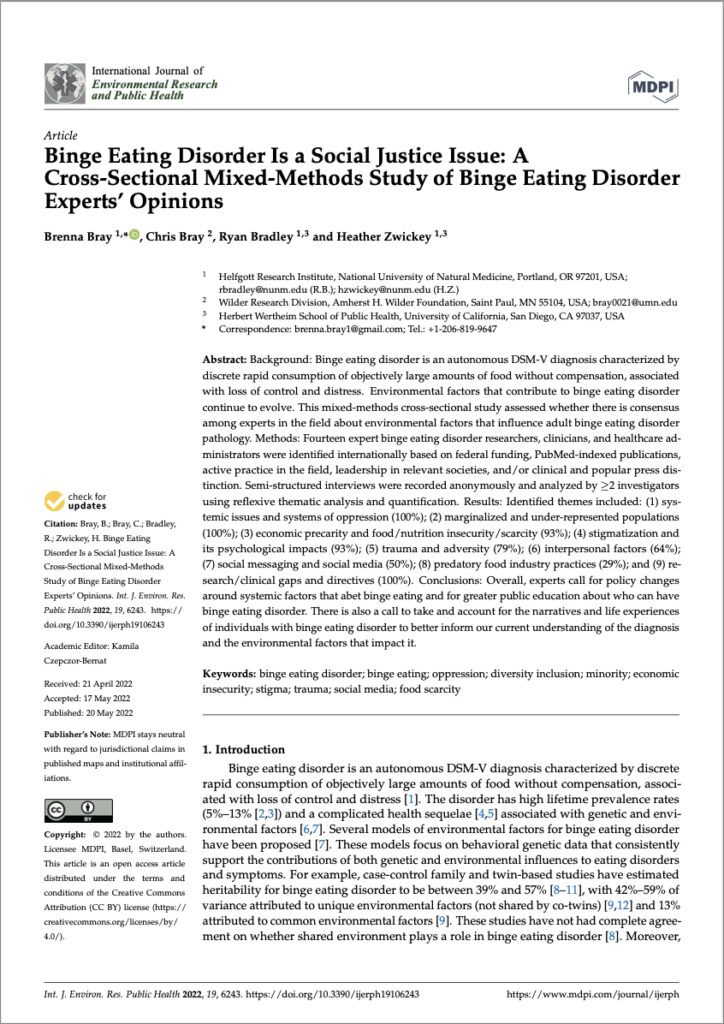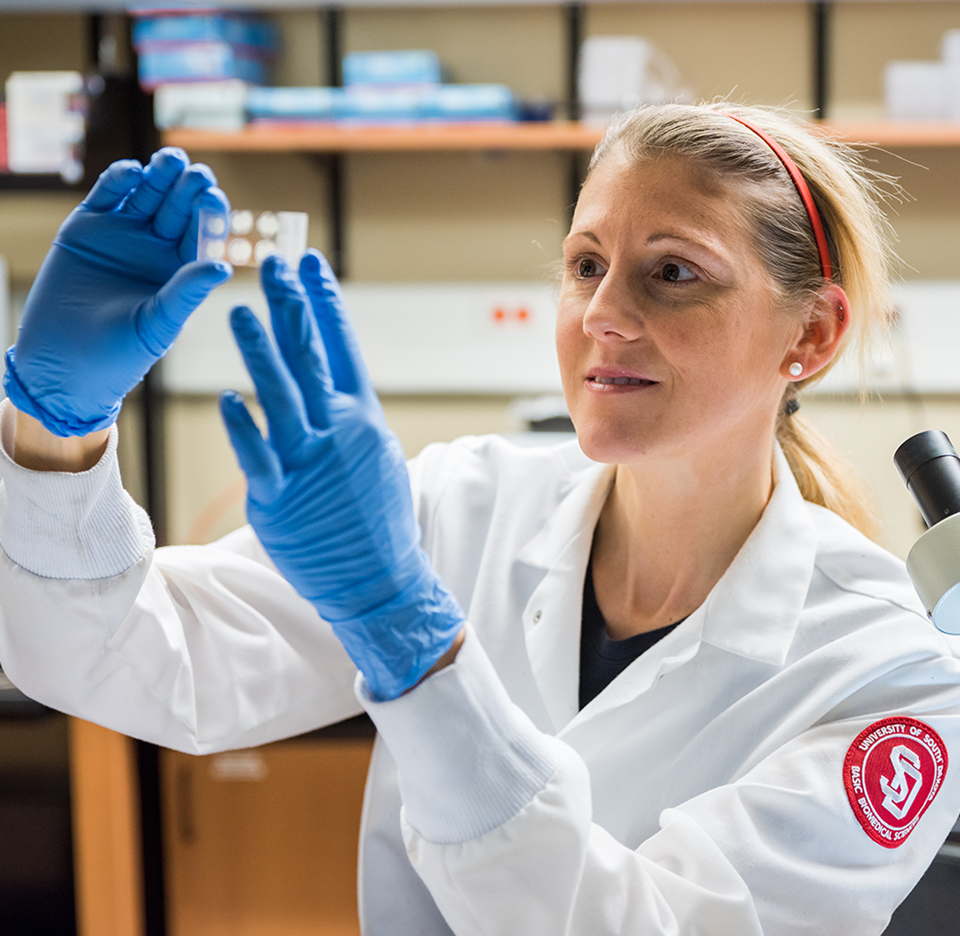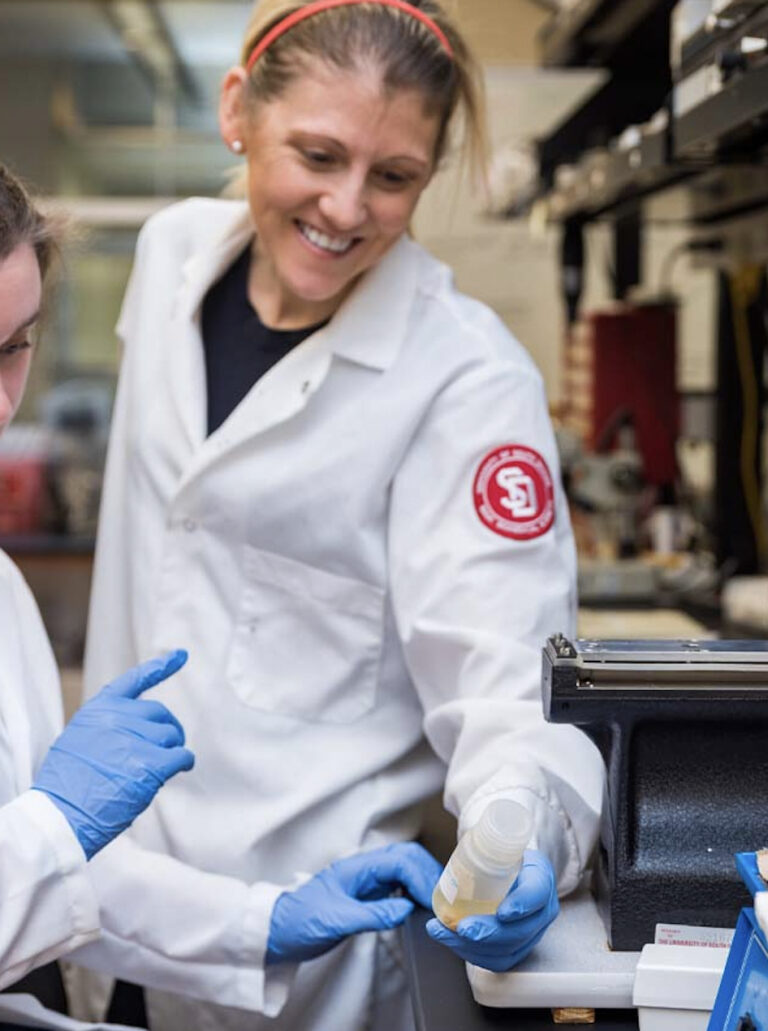


Binge eating disorder (BED) is a psychiatric diagnosis characterized by:
Standard-of-care interventions for BED have:

Studies find that among individuals with BED:
Dr. Bray’s Research raises awareness about BED and tests new treatment options that are:

Dr. Bray received her PhD in Basic Biomedical Sciences and Neuroscience from the University of South Dakota Graduate School and Sanford School of Medicine (2018).
Her dissertation work used a rat model of amphetamine pre-treatment and withdrawal to identify a neural (brain) pathway that enables stress hormones (cortisol in humans, corticosterone in rodents) to alter reward/motivation neurotransmission (e.g., dopamine output in the nucleus accumbens).
This pathway potentially enables stress to enhance motivation in healthy conditions and contributing to stress-induced relapse in drug withdrawal (Bray et al., 2016, 2018a, 2018b, 2020).
She received her post-doctoral at the National University of Natural Medicine’s Helfgott Research Institute as an NIH/NCCIH R90 Postdoctoral Research Fellow. Her post-doctoral research focussed on complementary and integrative health interventions that can be used to promote and support recovery from binge eating disorder in adults.
Most notably (and recently), Dr. Bray conducted a cross-sectional mixed-methods study of opinions and experiences of binge eating disorder experts.






